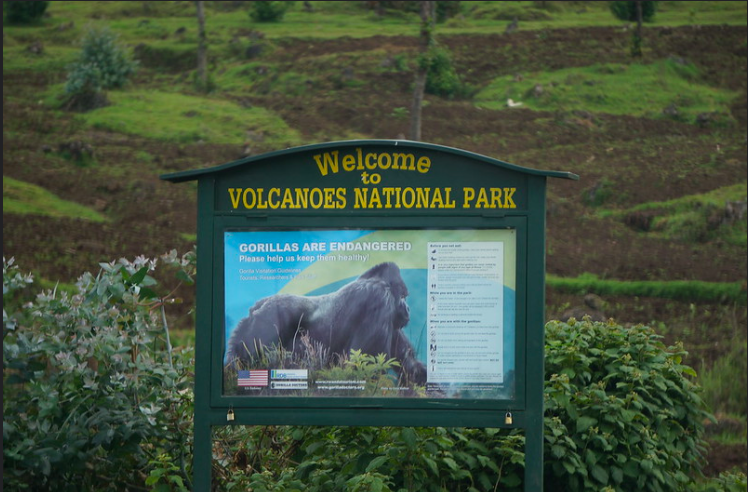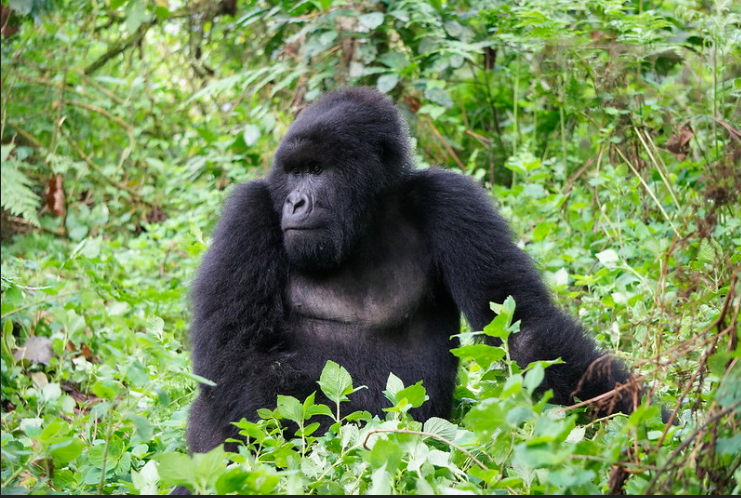Conservation must not be a COVID victim
As COVID-19 shrinks government budgets, John Scanlon argues that a park in the Democratic Republic of the Congo shows the importance of protected areas keeping their funding

Several hundred miles north of a dwindling Ebola outbreak, rangers at Garamba National Park in the Democratic Republic of Congo (DRC) are most concerned with how the COVID-19 pandemic will continue to play out around the world.
Up until this year, Ebola was perhaps the scariest disease on the planet. Arising at times when human activity expands into and damages the West and Central African rainforests, the disease set off a global panic in 2014 when seven cases appeared outside the African continent. But in 2020, COVID-19 is now the scariest, with its impacts slamming all facets of the global economy.
With so many funding sources decimated, everyone expects a precipitous drop in conservation efforts this year. In Garamba, the fear that poachers will take advantage of the situation is almost palpable. But more than just Garamba’s endangered wildlife hangs in the balance.
The world has entered a crisis of extinction, with almost all of its biodiversity under some kind of threat. In 2019, a report released by scientists from 134 UN member states found that the planet’s natural ecosystems have declined by an average of 47%. Approximately one million plant and animal species were found to be threatened with extinction.
The report emphasised that conserving the world’s most intact ecosystems has to be a global priority, a finding echoed by a report released at the start of 2020 by the World Economic Forum (WEF). The WEF report noted that the severe decline in biodiversity threatened food security, public health, and commerce around the world, and could magnify the worst impacts of climate change.
In that light, Garamba provides a success story for low and middle-income countries that have limited capacity to invest in nature conservation. Grants from donor countries and philanthropists have funded the park enforcement and community engagement, which in turn has curtailed poaching.
Elephant poaching alone has dropped by more than 90% in the past four years, and, concurrently, studies show that elephant populations are now recovering. The number of critically endangered Kordofan Giraffes in the park has stabilised and even started to increase again as the park prepares to explore the viability of tourism and additional revenue generating activities.
The giraffes and elephants and other charismatic large animals are obvious benchmarks for success, but Garamba’s story extends beyond their recovery. The park has succeeded because of the partnerships built with the local communities, who have lived in and managed this area for generations. Out of the park’s 523 employees, 95% are DRC nationals with 74% coming from the local province of Haut-Uele.
Garamba supports two local schools and its mobile health clinics and hospital served nearly 25,000 community members in 2019. Additionally, water sources for 24 villages have been constructed or rehabilitated, bringing clean water to more than 7,000 people.
Keeping this economic development in mind, one can easily make the point that these investments help countries meet many of the commitments made in UN conventions and agreed global goals—from sustainable development and public health to biodiversity conservation and climate change.
While international tourism revenues for 2020 are fast disappearing, it remains imperative for business, donors and governments to continue to invest in conservation, not only for its own sake, but to help avert the next pandemic, mitigate climate change and retain tourism appeal.

We need to be creative in achieving this goal by tapping business, national governments and donor budgets. As the benefits of effective nature conservation extend well beyond wildlife populations and attractive scenery—including health, development and security benefits—so too must the sources of financing. It would take a fraction of the program budgets in these other fields to deliver on nature conservation.
When they do, we can keep more natural places intact and allow endangered ecosystems to recover. Research finds that such efforts are successful; an analysis of conservation spending between 1992 and 2003—a total of $14.4 billion spent by 109 countries—cut the rate of biodiversity decline in each country by an average of 29%.
These successes have been noticed and embraced by a growing number of nations. Rwanda, for example, has grown its tourism industry by investing in conservation. One quarter of almost $10 million invested last year was to support Volcanoes National Park—one of the few places in the world where mountain gorillas can be found. As a result, tourists coming to see these primates have generated $19.2 million of revenue in 2019 alone, along with many decent local jobs.
While this revenue stream will not hold steady in 2020, the gorilla population can continue its recovery after decades of decline only if the protected areas are maintained and if conservation programmes can continue to be adequately funded during and after this pandemic. This will require a collective effort of business, government and donors; the tourists and the jobs will not return if the gorillas disappear.
The same reasoning motivates the rangers at Garamba to redouble efforts amidst warning signs of a surge in wildlife poaching. Gains have been made but they are fragile. If enforcement programmes cannot remain vigilant and lose the engagement and support of local communities, the modest recovery of the Kordofan Giraffe can be swiftly reversed.
The impacts of the 2014-16 outbreak of Ebola were terrible and the current COVID-19 pandemic has caused incalculable social and economic distress, but the next disease to emerge from damaged nature could be even worse.
Nature conservation has never been more important and we cannot risk it becoming another victim of COVID-19—it must become an investment priority of business, donors and government. If not, I fear we may find ourselves back in the same bleak place in the not too distant future.
John E Scanlon was Secretary General of CITES from 2010-2018 and is now the Special Envoy of African Parks


Join our commenting forum
Join thought-provoking conversations, follow other Independent readers and see their replies